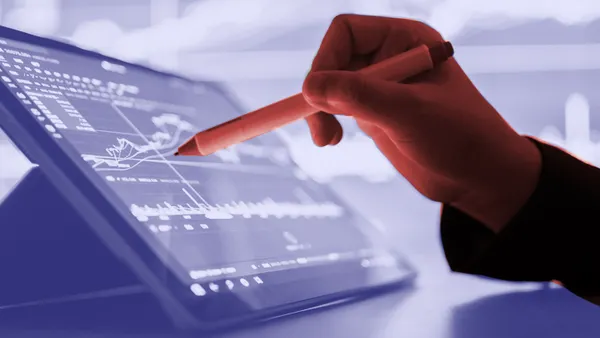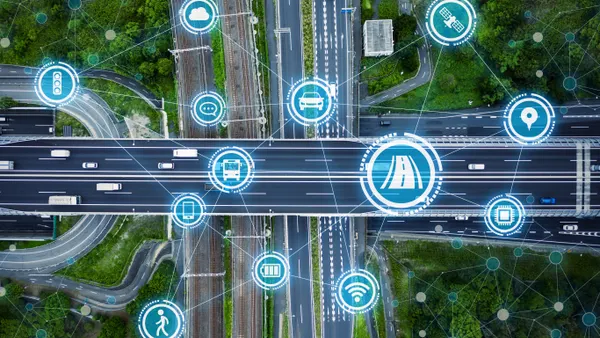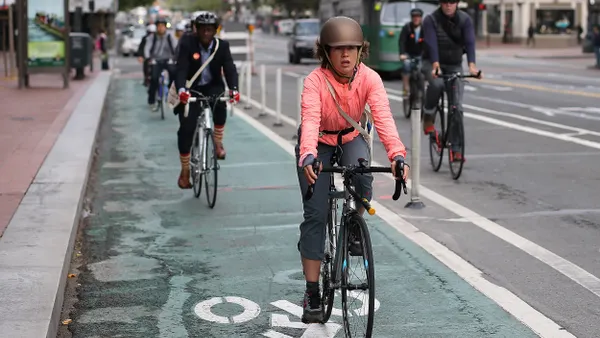Dive Brief:
- Citizens in King County, WA, which includes Seattle, are now able to submit votes by mobile device for the King Conservation District (KCD) board of supervisors election on February 11, NPR first reported. Voting began Wednesday and runs through election day; an estimated 500 ballots were submitted via mobile devices during the first 24 hours, Bea Covington, KCD executive director, told Smart Cities Dive.
- In addition to traditional forms of voting, citizens will have the option to log onto a phone, tablet, computer or other mobile device to cast ballots, which are verified by the voter signing the device's touchscreen. The King County Elections office will receive an alert to download and print the submitted ballot, and then the vote is counted manually in a traditional manner.
- The new voting option is intended to increase accessibility for voters who have difficulty getting to the polls, such as citizens who are aging, low-income or have disabilities. Another goal is to increase overall voter participation.
Dive Insight:
This is the largest public election in the country so far to allow mobile ballot submissions. Leaders are cautious not to call the process "mobile voting" because the votes are not cast and tallied in the cloud. The process could be called an "online ballot request and submission system," Covington said. The secure ballot submissions take place in the cloud, but there is always a paper trail and the counts are being performed by King County Elections.
Democracy Live is handling the logistics and security for the mobile voting via a collaboration with Amazon Web Services. The company has provided electronic balloting and voter technology services for nearly 1,000 elections in more than 500 jurisdictions across the country. It has worked prominently on voting solutions for military and other overseas citizens as well as people with disabilities.
The mobile experience is "the future of voting in this country," said Bryan Finney, president and founder of Democracy Live, at the launch event.
KCD has not noticed challenges so far with the mobile system, other than the "storm around us about the opinions about technology and use of it," Covington said. Indeed, following the planned speeches at the launch event, the majority of questions for speakers pertained to the technology and its security.
Covington echoes what Finney pointed out at the launch event: this technology already has been used many times and has been approved federally and at the state level.
"I think that a lot of the fear that is being expressed is fear that's associated with other kinds of truly online mobile voting, and that is not what this is. This is a technology that has already been accepted by the state of Washington for sending ballots to overseas and military and disabled voters," Covington said.
Devising strong system security was at the forefront of the planning process. Elections officials will check signatures on the mobile ballots just as they would with paper ballots. They will reach out to voters via their digitally submitted contact information if any discrepancies, duplicate votes or potential ballot submission errors exist. Finney said this system is more secure than emailing ballots, which has been done in the past.
Still, some public skepticism exists about the system security. Dissenters say the digital signature is not secure enough and people could vote in someone else's name if they have certain personal information.
Some mobile voting attempts in the past ended poorly. Washington, DC, for example, tried to offer mobile voting a decade ago but it was shut down when a hacker infiltrated the system.
But a mobile voting pilot in Denver last year is among those viewed as successful. A follow-up report said the pilot "clearly demonstrated the effectiveness and convenience of secure ballot delivery and return." Speakers at the King County launch event cited Denver's pilot as one to emulate.
Leaders believe voting accessibility boosts participation and will lead to better outcomes. It especially helps those who have difficulty accessing polling stations.
A disability rights advocate noted that there are buses to polling places in King County, but some of the bus stops do not have sidewalks to the building. That makes it a difficult and dangerous landscape for visually impaired citizens to navigate. Mobile ballot submissions remove that barrier. They are even compatible with text-to-speech readers so visually impaired voters can hear all of the ballot information displayed on a device screen.
"Mobile voting could very well be the next frontier. When more people participate our democracy is healthier, it's stronger," King County Executive Dow Constantine said at the launch event.
Covington said KCD special purpose elections tend to get 1-3% voter turnout, while other districts' special purpose elections can get up to 25-30% and presidential elections often draw 60-70%. For this election, with mobile submissions added, "in an ideal world I would like to see 60-70%. I would be happy if we could get to the 25-30% range, in line with other special purpose elections. But I don't think we'll get there this year; halfway would be amazing," Covington said.











